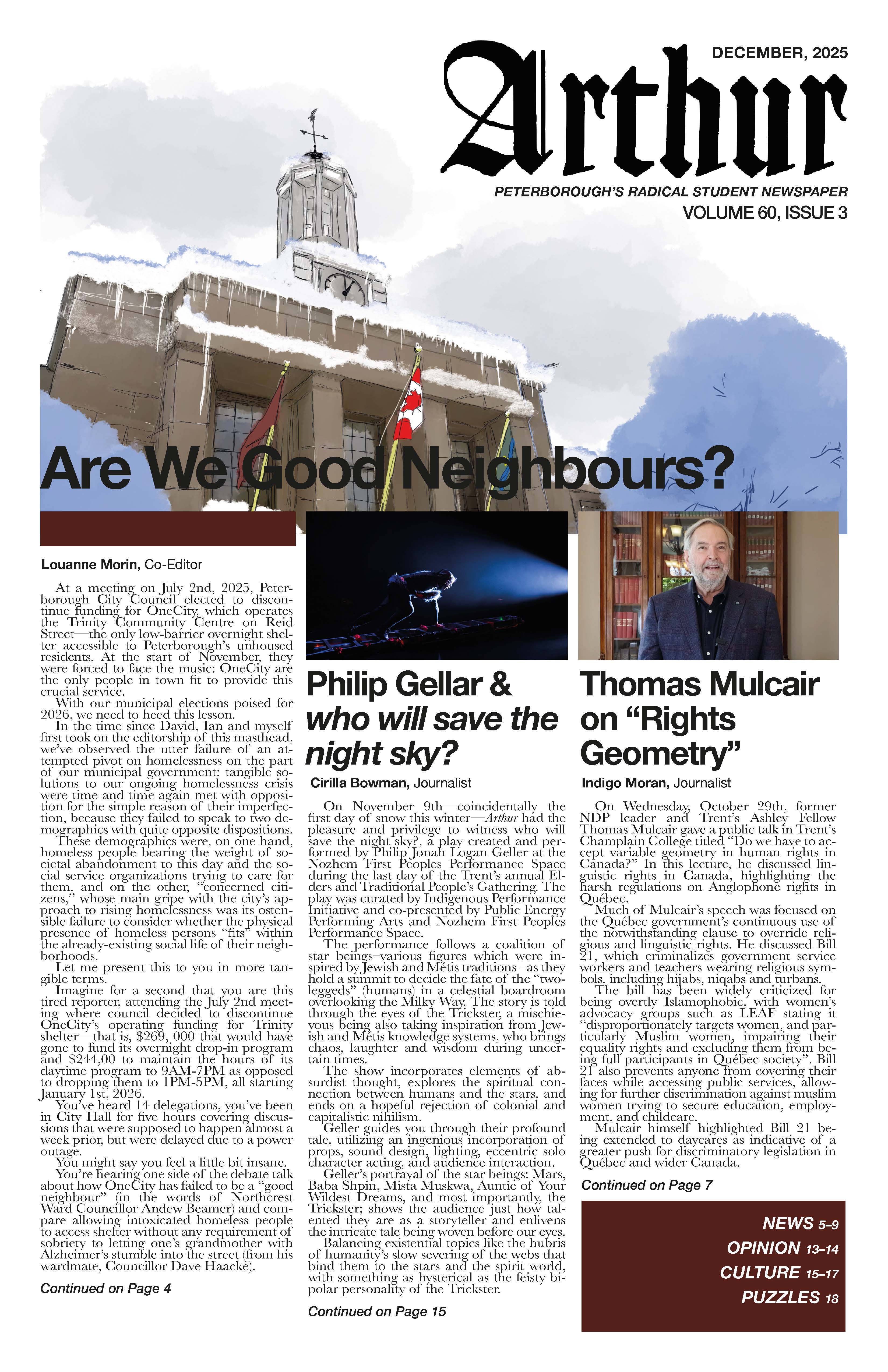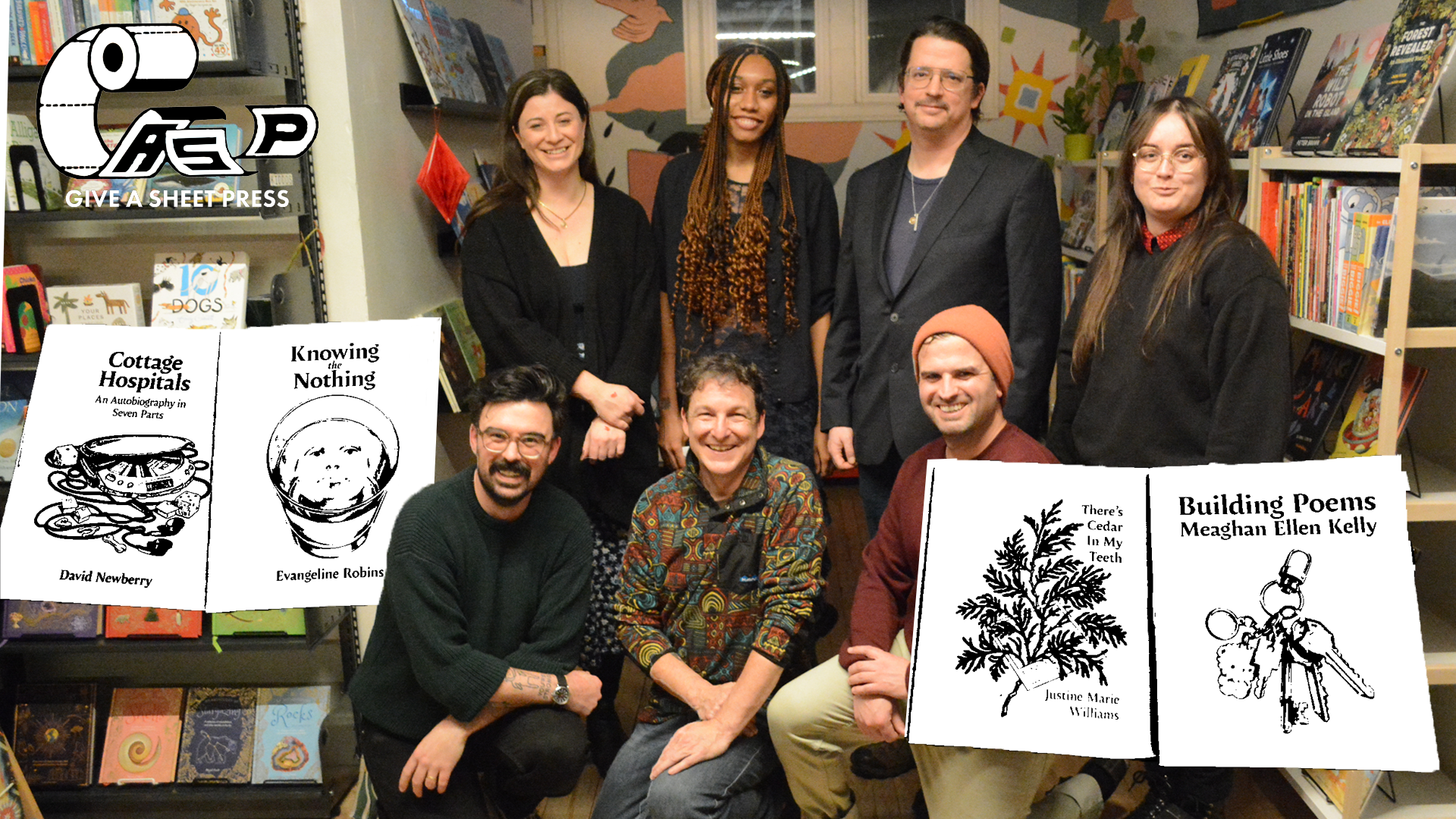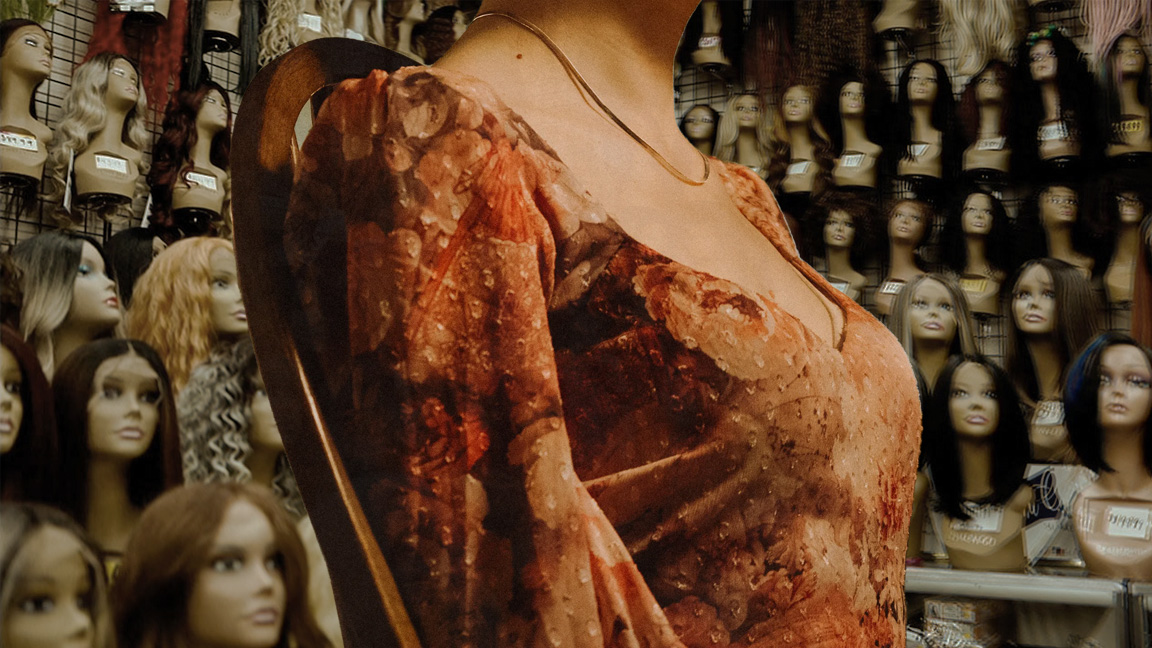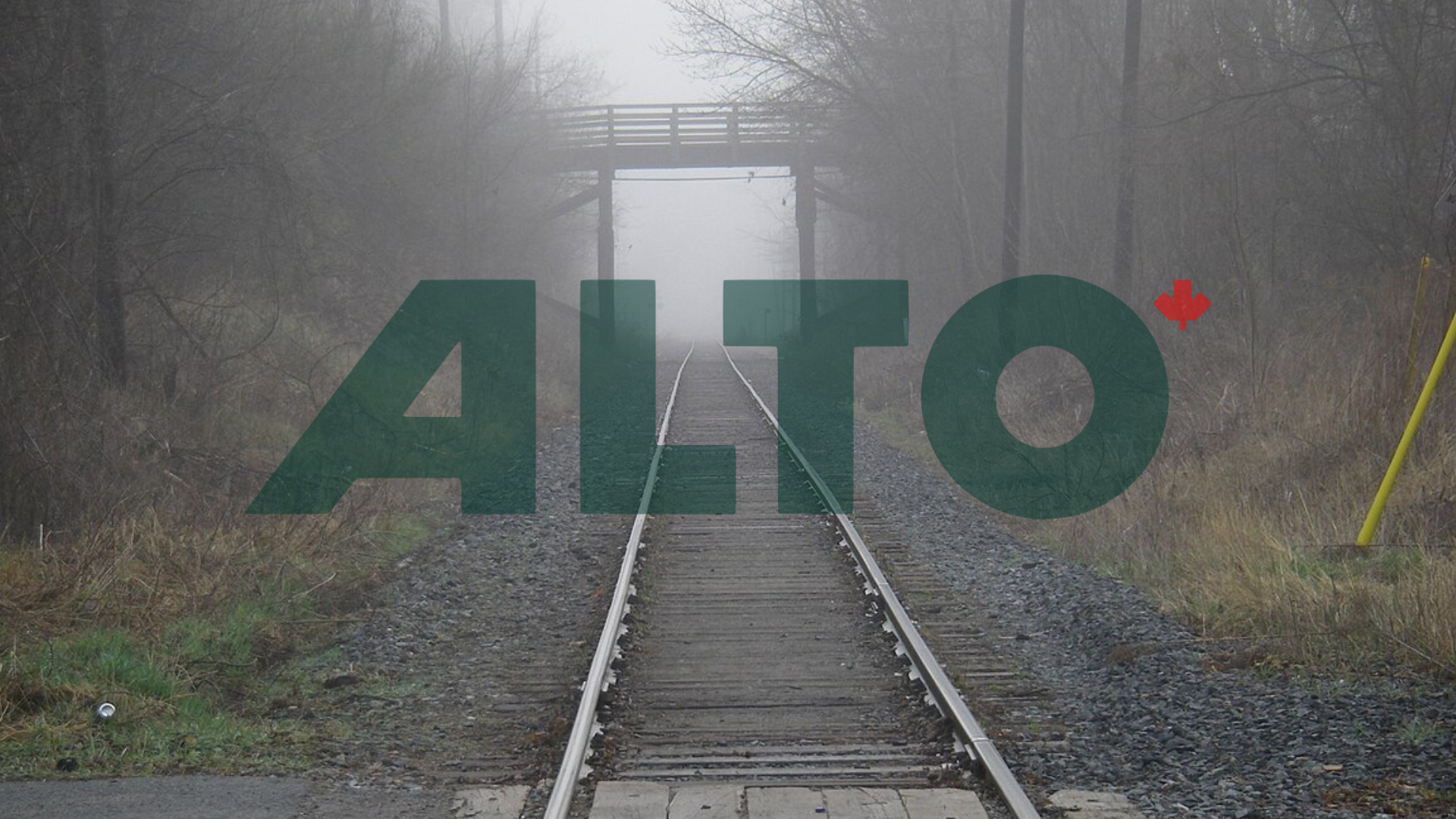The curated anthology of Canadian poetry hand selected by Aislinn Hunter displays the human soul through its collection of diverse poets. The ‘Best of Canadian’ series presented by Biblioasis archives back to 2008, sharing Canadian stories, essays and poetry for over a decade now.
One thing that I love about poetry is that it is very human. There is no wrong way to write poetry, although there are different methods that can distinguish the quality of a poem. The Best Canadian Poetry 2025 does not let down in terms of its promised quality and more importantly, the heart put into each work.
The authors in this book all compliment the series by incorporating their unique literary styles and techniques, ensuring an enticing read for seasoned poetry readers and casual ones alike.
While many poets in this book use traditional poetic formation, the less conventional incorporation of digital formatting to enhance the poems format, as seen in Erin Moure’s “The Straying of All Translation: A Phrase Archive” and Erin Bedford’s “For my Dad who Never Read my Poems but Died with a Well-Thumbed Copy of Watership Down” offers a new take on how to break conventions in the ever-developing landscape that what constitutes a poem.
Highlighting the Canadian experience from various diverse perspectives gives this book a very united feeling, from remote reservations to the rural suburbs to the GTA, the works and their authors in their own way offer something for all readers.
Hunter opens the book with her introductory essay titled “Why Poetry,” where she expounds on the idea of poetry and its connection to the human heart. Sharing her touching background, she describes how her ill husband (who did not pay much mind to poetry prior to his hospitalization) wished to have poetry recited to him as part of his final wishes.
She goes on to say “In poetry, you have your hand on someone else's heartbeat.” A touching way to differentiate the power of poetry compared to alternative artistic mediums.
Now, appraising the contents of the book itself, it is hard to pick only a select few poems to talk about. Each writer deserves recognition, and in that I will gladly encourage any literary enjoyers to pick up a copy and give each poem their well-deserved attention. Unfortunately, I can’t give each one the spotlight they deserve, so I will talk about a couple for which I felt an affinity during my reading.
The first poem that I will be bringing your attention to is actually the first one listed in the collection, titled “ACCORDING TO THE CBC, INDIGENOUS PEOPLES ARE DEMONSTRABLY MORE VULNERABLE TO ILLNESS AND DISEASE, LIVE 15 YEARS LESS THAN OTHER CANADIANS.” Locking the reader in with that elegiac title, Driftpile Cree writer Billy-Ray Belcourt writes about the sensationalistic approach news sources use to exploit Indigenous tragedy. Belcourt implies the media and the general population only care to listen to the imposed injustice on Native peoples, rather than anything that supports decolonial change and the uplifting of Indigenous culture. He strikes the reader with powerful phrases such as:
“I don’t yet know how to mourn
the loss of all those years
before I’ve lost them,
all that unclaimable joy-”
and ends the poem with a line of empowerment, not letting the reader forget that although the injustice is recognized, it will not be a force that weighs down.
“Every day they don’t die
isn’t of statistical importance.
And so, every day they wake up
they invent another way to be
unconquerable.”
Belcourt’s use oF language, writing as if talking to you directly, is articulated efficaciously in allowing the reader both a personal and vulnerable pull into his perspective.
Another poem that I would like to give my attention to here is titled “Five days a Week”. Using a less traditional formatting, Hollie Adams rhythmically shares her experience as a female athlete, using repetition as an emphasis on her experience as a female figure skater in a male dominated space that tends to only take hockey players seriously. While she cannot escape misogynistic assumptions, Adams shows her love for her sport regardless of the discouragement and judgment of those around her.
The poem is very theatrical, its lyrical essence allows one to feel as if they are on the ice, axeling and twirling through the arena with every pause, every break, every descension, and ascension. Reading the poem is a somatic experience, displaying that cold atmosphere we’re all likely familiar with in some way. A part of the poem I found most complimentary was the following:
“not looking, we see them through the safety glass
not looking
the one with the name of the future senator
blond in that evil way
teeth as white how white? so white.
white as his puka shell necklace
as white as the shutters on a Cape Cod compound
as white as my skates once and
for him I am my electric self
for him my laugh is a clapper-less bell
here is the feeling of being on camera
and liking it
watch me do my signature move
watch me turn myself into a magic trick
…”
Adam’s use of repetition is illuminating, and her energy contagious. Reading this poem makes me feel her radiance and confidence on the ice, regardless of what is perceived of her profession.
As much as I would love to dissect every poem, I’m afraid that this is all that I will be covering of The Best Canadian Poetry 2025. If you were fond of the snippets of poems that I’ve shared here, I highly encourage you to go read more from those authors. And of course, of the entire selection of poems as well, especially that of Trent's own Rob Winger (and his brilliant feature “Near Dark Park”). Go support some fellow Canadian writers! (And your professor!)
Correction (2024-11-19) 11:42 AM: corrected a typo of Aislinn Hunter's name which misspelled it as "Alison"


.png)


.jpg)

%20(3).png)
.jpeg)



.jpg)


.jpg)









.png)